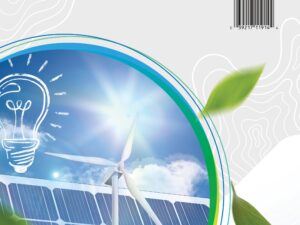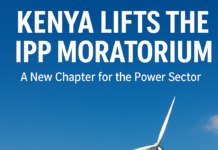Last Updated 2 days ago by Kenya Engineer
Tensions at COP30 are intensifying as African governments argue that they require “flexibility” to keep fossil fuels in their transition plans, citing the chronic shortfall of climate finance. The world’s wealthiest nations, who built their economies through centuries of colonial extraction and carbon-intensive industrialization, continue to delay the finance they promised. This position stands in stark contrast to the accelerating global push for a fossil fuel phase-out and raises the urgent question of who gets left behind as the world moves into a new energy era. As wealthy nations delay delivering the finance they owe, African countries are being cornered into choices that risk locking the continent into more debt, energy poverty, stranded assets, weakened economies, and another cycle of extractive dependency. We need strong and clear calls for reparations and system change to decolonize Africa’s energy sector instead.
In response, Terry Githinji, Africa Program Manager, Oil Change International, said:
“It’s deeply worrying that at a time when global leaders are coalescing around phasing out fossil fuels, some African countries are pushing for a wiggle room for fossil fuels as part of the transition to clean energy. As COP30 confronts the reality that the fossil fuel era is ending, the real question for Africa is whether we allow ourselves to remain an extraction zone for other regions’ energy transitions, or whether we pursue energy sovereignty. Over 70% of projected new oil and gas production in Africa over the next 30 years is at high risk of becoming stranded assets.
“A just transition means stopping fossil fuels, not being held back by them, and choosing a future powered by clean energy. In Africa, a just transition includes energy access for the millions of Africans currently without energy for driving local economies and domestic needs. It is time that world leaders put in the work and finance to ensure that Africa has a just transition to renewable energy instead of being locked into more fossil fuels.”
Omar Elmawi, Convenor, Africa Movement of Movements, said:
“The notion that Africa needs fossil fuels, especially gas, to transition and develop is propaganda pushed by a few fossil-fuel‑rich countries. The truth is fossil fuels have only impoverished our communities in Nigeria, Uganda, Angola, and South Africa. Fossil fuels are not helping our continent. We have enough renewable energy to meet the continent’s energy needs. What we need is grant-based finance and support so Africa can use its resources for its own development.”
Karabo Mokgonyana, Renewable Energy Campaigner, Power Shift Africa, said:
“Fossil fuel extraction is taking over the land that feeds our communities, fueling conflict and militarization, harming health, and even displacing people from their own land. How much more evidence do we need to see that fossil fuels are destroying lives and livelihoods across Africa? Gas is not a transition fuel. What are we transitioning to; more harm, more loss, more damage? Africa does not need gas or other fossil fuels in our communities. As the Global South, we are saying no to fossil fuels and no to gas being labeled a transition fuel.”

























